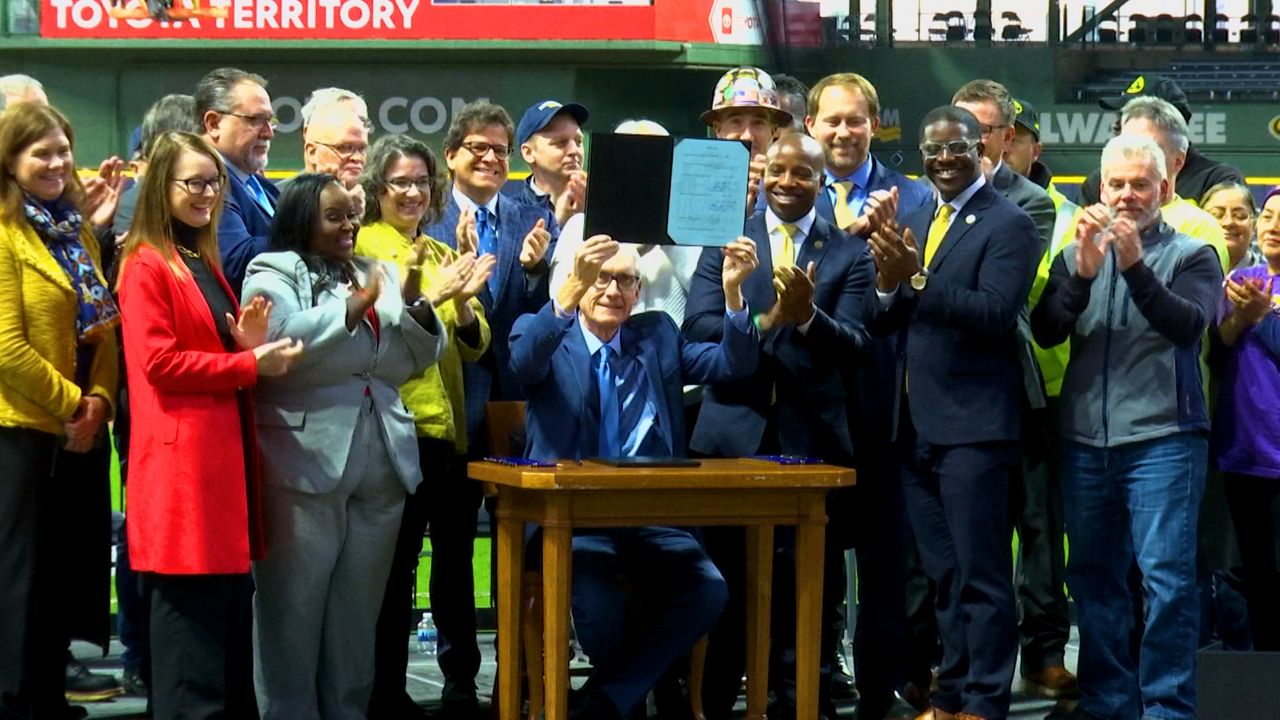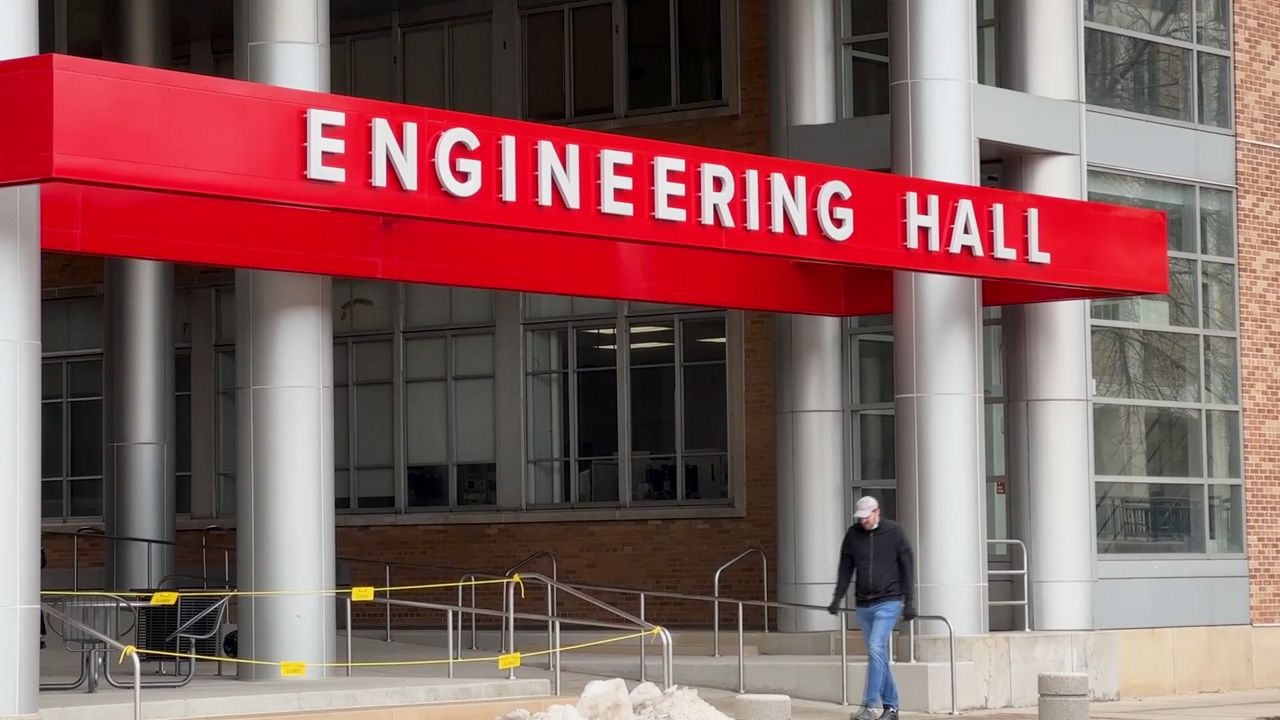MADISON, Wis. — Passing a two-year spending package took plenty of bipartisan compromise, but if that weren’t enough, lawmakers in the Wisconsin Senate were able to come together on several big policies this year, including covering the cost of repairs at American Family Field where the Brewers call home.
Spectrum News 1 Political Reporter Anthony DaBruzzi sat down with State Sen. Dan Feyen of Fond du Lac, who serves as the Assistant Majority Leader, and worked behind-the-scenes to get both parties to back some of this year’s biggest deals.
Back in February, Gov. Tony Evers first floated the idea of funding stadium repairs using a portion of the state’s surplus as part of his budget. While Republicans opposed the plan, they did write their own standalone bill, separate from the budget, which the governor signed into law earlier this month.
Feyen was an architect of the deal, which ultimately spent $365 million in state funds in exchange for the team agreeing to stay in Milwaukee through 2050.

“We started pulling in the Democrats to have conversations with them too because we knew to get this thing across the finish line, we're going to probably need some Democratic votes,” Feyen explained. “And if there's ever time to do it, let's bring them in early enough for the process, so it's not like here's the deal: Do you like it or not? So, they were involved in the process early on, along with the governor's office, so it was a long road, but we got it across home plate, and it's a great deal for Wisconsin.”
The Brewers stadium funding deal was hardly the only legislation to garner bipartisan support to pass. Lawmakers also came together on shared revenue and a major reform of how the state regulates alcohol.
Feyen believes that shows bipartisanship is improving amid divided government.
“I think it's improving, but there [are] some areas where we're never going to agree on, and that's just going to be the way politics are,” Feyen added. “Republicans have their core beliefs; Democrats have their core beliefs, but if you look back to the Brewers bill, for example, it's not a core belief on either side. It was a good business deal for the state of Wisconsin. Shared revenue is helping out municipalities, no matter where they are, could be Madison, a very Democratic city—got a big boost. Way up north, they all got a big boost as well, so we're getting some more bipartisanship done. I think it's getting a little better. Like I said, on certain areas, it's always going to be contentious, but keep in mind every time the governor signs a bill, it's a bipartisan bill. The Republican legislature passed it, and the governor is signing it, so in its nature, it's bipartisan. But even before this, before Gov. Evers, 90% of what we did in this building over that was bipartisan—most people don't realize that.”
Despite significant compromise in 2023, more will be needed during the remainder of floor session in 2024. One of the biggest legislative deals for lawmakers to tackle will be a funding deal between GOP leaders and the Universities of Wisconsin.
Earlier this month, the Board of Regents approved an agreement to limit Diversity, Equity, and Inclusion programs in exchange for millions of dollars in funding for campus projects and previously approved pay raises for UW employees.

Among the projects is funds for a new engineering building on the UW-Madison campus, which Feyen said he was a huge proponent of and now remains optimistic lawmakers will hold up their end of the deal by approving it.
“I have UW Oshkosh in my district, and you know, their infrastructure is old along with all the others, and this helps get some of that done too,” Feyen said. “So, when the UW regents [first] voted it down, I was very disappointed, and I was ready to dig my heels in because this was the best and final offer. It's like this is it. I was a huge supporter of the UW engineering building, but now they can wait, so I'm glad they came to their senses, came back to the table, and they did what they need to do. Now, it's up to the Legislature to do what we need to do, and I think we'll get it done.”



